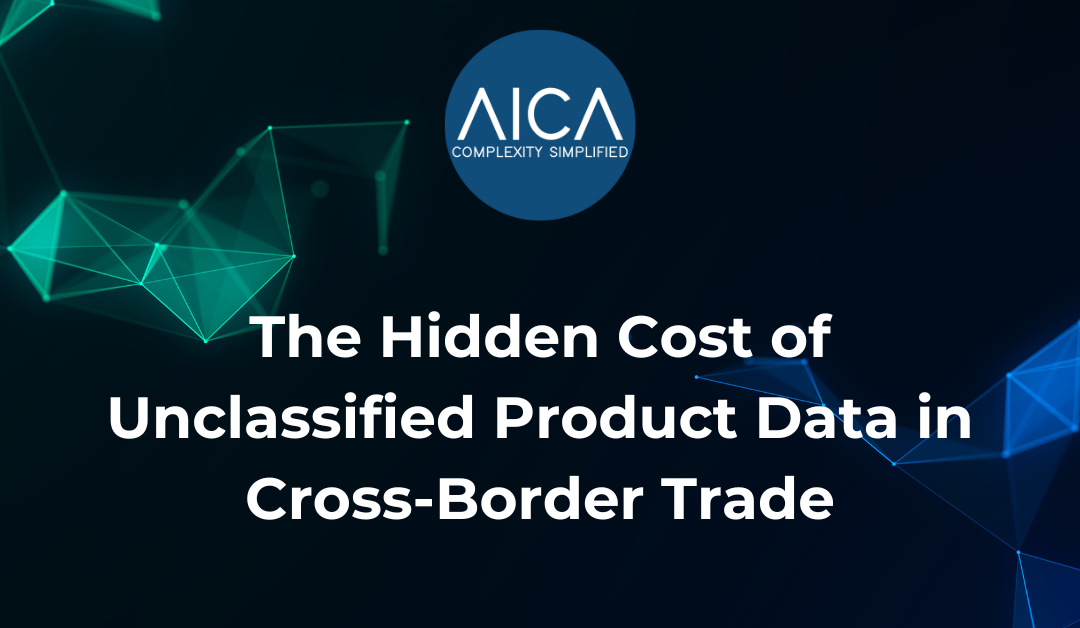Businesses that engage in cross-border trade must manage increasingly complex product and service data across languages, currencies, regulations, and logistics. At the heart of this complexity lies a critical but often overlooked vulnerability: unclassified or poorly structured product data.
Without standardized classification systems like the United Nations Standard Products and Services Code (UNSPSC) or the ETIM Technical Information Model, global trade operations become error-prone, opaque, and inefficient. In this article, we examine how unclassified data impacts cross-border trade and why structured classification is essential for scaling global operations.
1. Regulatory Delays and Customs Complications
When product data lacks standardised classification, it can trigger delays at customs checkpoints. Countries often rely on harmonised classification systems to assess duties, ensure compliance, and conduct inspections. If product descriptions are vague, inconsistent, or misclassified, goods may be held, flagged, or rejected outright.
Example: A mining component described only as “steel part” may be misinterpreted at customs, delaying entry and creating additional paperwork, penalties, or fines.
2. Inaccurate Tariff and Duty Calculations
Tariff codes are used to calculate import/export duties and taxes. Without accurate classification, businesses risk misapplying these codes, resulting in overpayments, underpayments, or non-compliance. Incorrect duty payments can also jeopardise free trade agreements or VAT recovery opportunities.
3. Limited Trade Data Transparency
Governments and trade partners require transparent reporting for audits, inspections, and trade agreements. Unclassified product data makes it difficult to produce consistent and comparable reports. This lack of clarity not only risks non-compliance but erodes trust with international partners and regulatory bodies.
4. Poor Supply Chain Coordination
Global supply chains rely on harmonized data to ensure seamless communication between trading partners, logistics providers, and internal systems. If one company uses “filter component” and another uses “filtration element,” automated systems fail to match SKUs or fulfill orders efficiently. Misaligned data leads to delays, inventory errors, and higher freight costs.
5. Missed Opportunities in Strategic Sourcing
Unstructured data makes it harder for procurement and supply chain leaders to identify sourcing alternatives across regions. Without standardised classification (e.g., UNSPSC, GPC, or ETIM for technical products), it becomes impossible to compare like-for-like goods, consolidate global spend, or negotiate better rates from international suppliers.
How AICA Helps Organisations Overcome These Challenges
AICA’s Product Data Intelligence Platform uses proprietary Agentic AI models to classify, cleanse, enrich, and structure product data with over 90% accuracy. For cross-border trade environments, we help clients:
- Automatically classify items into UNSPSC, ETIM, or GPC taxonomies
- Translate and standardise product descriptions for customs and trade compliance
- Detect and correct misaligned or duplicate records
- Integrate structured data directly into ERP, EAM, or procurement platforms
Whether you’re shipping industrial parts, technical products, or complex assemblies across borders, AICA helps ensure your data is globally compliant and operationally efficient.
Conclusion
Customs delays, compliance failures, inaccurate tariffs, and poor supplier coordination all stem from one issue: a lack of classification. With standards like UNSPSC and ETIM, and with AI-powered automation from AICA, you can eliminate these risks and unlock operational clarity across borders.
Let’s clean up your data and accelerate your cross-border operations.
Visit our website here to find out more.

